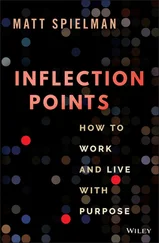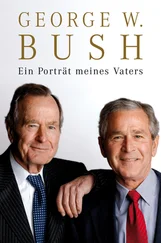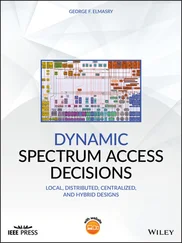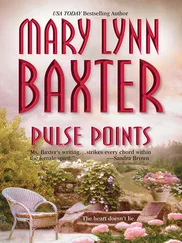I had heard a lot about my paternal grandparents from Dad. My grandfather Prescott Bush was a towering man—six foot four, with a big laugh and a big personality. He was well known in Greenwich as a successful businessman with unquestioned integrity and a longtime moderator of the town assembly. He was also an outstanding golfer who was president of the U.S. Golf Association and once shot sixty-six in the U.S. Senior Open.
In 1950, Gampy, as we all called him, ran for the Senate. He lost by just over a thousand votes and swore off politics. But two years later, Connecticut Republicans persuaded him to try again. This time he won.
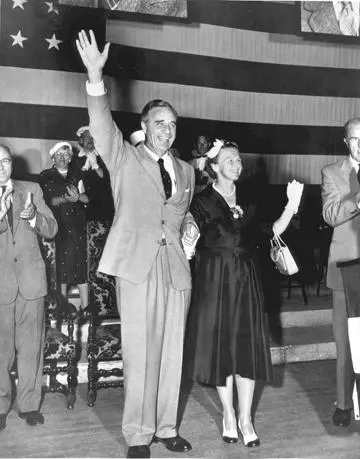
My grandparents, Prescott and Dorothy Walker Bush, campaigning for the U.S. Senate in Connecticut.
When I was ten years old, I went to visit Gampy in Washington. He and my grandmother took me to a gathering at a Georgetown home. As I wandered among the adults, Gampy grabbed my arm. “Georgie,” he said, “I want you to meet someone.” He led me toward a giant man, the only person in the room as tall as he was.
“I’ve got one of your constituents here,” Gampy said to the man. A huge hand swallowed mine. “Pleased to meet you,” said Gampy’s colleague, Senate Majority Leader Lyndon B. Johnson.
My grandfather could be a very stern man. He was from the “children should be seen but not heard” school, which was foreign to a chatty little wiseacre like me. He doled out discipline quickly and forcefully, as I found out when he chased me around the room after I had pulled the tail of his favorite dog. At the time, I thought he was scary. Years later, I learned that this imposing man had a tender heart: Mother told me how he had comforted her by choosing a beautiful grave site for Robin in a Greenwich cemetery. When my grandfather died in 1972, he was buried at her side.
Dad loved and respected his father; he adored his mom. Dorothy Walker Bush was like an angel. We called her Ganny, and she was possibly the sweetest person I have ever met. I remember her tucking me into bed when I was little, tickling my back as we said nightly prayers. She was humble, and taught us never to brag. She lived to see Dad become president and died at age ninety-one, a few weeks after his defeat in 1992. Dad was with her in the final moments. She asked him to read to her from the Bible next to her bed. As he opened it, a bundle of old papers slipped out. They were letters Dad had written her years ago. She had cherished them all her life, and wanted them near her at the end.
Mother’s parents lived in Rye, New York. Her mother, Pauline Robinson Pierce, died when I was three. She was killed in a car accident when my grandfather Marvin, who was driving, reached down to stop a cup of hot coffee from spilling. The car swerved off the road and hit a stone wall. My little sister was named in my grandmother’s memory.
I was very fond of Mother’s father, Marvin Pierce, known as Monk. He had lettered in four sports at Miami University of Ohio, which gave him a mythic aura in my young eyes. He was president of McCall’s and a distant relative of President Franklin Pierce. I remember him as a gentle, patient, and humble man.
My trips back east taught me two important lessons: First, I could make myself comfortable in just about any environment. Second, I really liked living in Texas. Of course, there was one big advantage to being on the East Coast: I could watch major league baseball. When I was about ten years old, my kind uncle Bucky, Dad’s youngest brother, took me to a New York Giants game in the Polo Grounds. I still remember the day I watched my hero, Willie Mays, play the outfield.
Five decades later I saw Willie again, when he served as honorary commissioner for a youth T-ball game on the South Lawn of the White House. He was seventy-five years old, but he still seemed like the Say Hey Kid to me. I told the young ballplayers that day, “I wanted to be the Willie Mays of my generation, but I couldn’t hit a curveball. So, instead, I ended up being president.”

In 1959 my family left Midland and moved 550 miles across the state to Houston. Dad was the CEO of a company in the growing field of offshore drilling, and it made sense for him to be close to his rigs in the Gulf of Mexico. Our new house was in a lush, wooded area that was often pelted by rainstorms. This was the exact opposite of Midland, where the only kind of storm you got was a dust storm. I was nervous about the move, but Houston was an exciting city. I learned to play golf, made new friends, and started at a private school called Kinkaid. At the time, the differences between Midland and Houston seemed big. But they were nothing compared to what was coming next.
One day after school, Mother was waiting at the end of our driveway. I was in the ninth grade, and mothers never came out to meet the bus—at least mine didn’t. She was clearly excited about something. As I got off the bus, she let it out: “Congratulations, George, you’ve been accepted to Andover!” This was good news to her. I wasn’t so sure.
Dad had taken me to see his alma mater, Phillips Academy in Andover, Massachusetts, the previous summer. It sure was different from what I was used to. Most of the dorms were large brick buildings arranged around quads. It looked like a college. I liked Kinkaid, but the decision had been made. Andover was a family tradition. I was going.
My first challenge was explaining Andover to my friends in Texas. In those days, most Texans who went away to high school had discipline problems. When I told a friend that I was headed to a boarding school in Massachusetts, he had only one question: “Bush, what did you do wrong?”
When I got to Andover in the fall of 1961, I thought he might be on to something. We wore ties to class, to meals, and to the mandatory church services. In the winter months, we might as well have been in Siberia. As a Texan, I identified four new seasons: icy snow, fresh snow, melting snow, and gray snow. There were no women, aside from those who worked in the library. Over time, they began to look like movie stars to us.
The school was a serious academic challenge. Going to Andover was the hardest thing I did until I ran for president almost forty years later. I was behind the other students academically and had to study like mad. In my first year, the lights in our dorm rooms went out at ten o’clock, and many nights I stayed up reading by the hall light that shined under the door.
I struggled most in English. For one of my first assignments, I wrote about the sadness of losing my sister Robin. I decided I should come up with a better word than tears . After all, I was on the East Coast and should try to be sophisticated. So I pulled out the Roget’s Thesaurus Mother had slipped into my luggage and wrote, “Lacerates were flowing down my cheeks.”
When the paper came back, it had a huge zero on the front. I was stunned and humiliated. I had always made good grades in Texas; this marked my first academic failure. I called my parents and told them I was miserable. They encouraged me to stay. I decided to tough it out. I wasn’t a quitter.
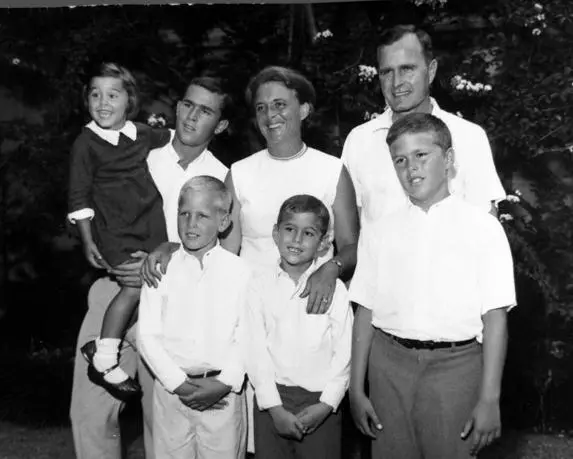
Home in Houston on a break from Andover. Because of the age difference, I felt more like an uncle than a brother to my siblings in those days.
My social adjustment came faster than my academic adjustment. There was a small knot of fellow Texans at Andover, including a fellow from Fort Worth named Clay Johnson. We spoke the same language and became close friends. Soon I broadened my circle. For a guy who was interested in people, Andover was good grazing.
Читать дальше









